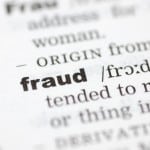
(September 15, 2020): There are approximately 1.4 million active duty service members in our country. These active duty service members have approximately 1.9 million dependents. Our military also consists of almost a million reserve and national guard participants. Depending on an individual’s status, these active duty service members, their dependents, and reservists are likely eligible to participate in a dental plan administered by United Concordia Dental. Despite the fact that many dental practices have been decimated due to COVID-19, United Concordia and its Special Investigations Unit (SIU) have continued to move forward with ongoing dental claims audits AND initiate new investigations of suspected instances of improper billing and fraud. United Concordia’s SIU is responsible for detecting fraud and improper coding or billing practices in the government’s Active Duty Dental Program [1] and in the TRICARE Dental Program [2]. This article examines recent investigations and prosecutions of dentists and their practices for the submission of improper dental claims to United Concordia for coverage and payment. We will also discuss a number of the steps you can take to reduce your level of risk if your dental claims are audited by United Concordia Dental and its SIU.
I. How are United Concordia Dental Claims Audits and Investigations Generated?
The SIU at United Concordia Dental is responsible for coordinating dental fraud investigations with both state and federal law enforcement agencies. Notably, United Concordia Dental’s Utilization Review Department has also taken an active role in the identification and audit of aberrant billing patterns. Collectively, these units have capitalized on their ability to ferret out fraudulent billing and coding conduct using data mining. Several of the primary referral sources relied on by United Concordia’s SIU and its Utilization Review Department are set out below:
Data mining. United Concordia Dental auditors and investigators rely heavily on their ability to compile and analyze historical utilization, coding and billing data to identify potential improper conduct. While data mining and analytics may not be able to definitively prove that a dentist is defrauding a payor, it can be used an effective audit targeting tool by the payor. Once an outlying dentist is identified, the payor can focus its audit and investigative resources on specific issues and claims.
Patient complaints. When a patient is treated by a dentist, an Explanation of Benefits (EOB) is ultimately generated and sent to the attention of the subscriber (the individual responsible for coverage by the health plan). An EOB is intended to describe the dental services provided and indicate whether or not the service qualifies for coverage and payment. Unfortunately, EOB’s are often cryptic and can cause significant confusion when reviewed by a subscriber. This can result in complaints filed with a payor’s SIU or a state / federal law enforcement agency.
Anonymous complaints. United Concordia Dental has established an effective SIU Fraud Hotline that can be used by a complainant to file a complaint. A person registering a complaint with the SIU can choose to identify himself / herself OR may remain anonymous. Complaints may be submitted through the SIU Fraud Hotline[3] by e-mail, fax or phone. Individuals filing anonymous complaints have included patients, current or past employees, competitors and others who believe that he or she has knowledge of wrongdoing.
Overpayment data. This may be based on a specific dentist’s “error rate” or the overall error rate calculated for a dental practice. After considering a dentist’s history of repeated overpayments, United Concordia may decide to initiate an audit or investigation.
State dental licensing boards. State Dental Boards taking an adverse action against a licensed dental professional mat be required by law to report the adverse action to the National Practitioner Databank (NPDB). When this occurs, notice of the adverse action will be accessible United Concordia Dental and other payors. Depending on the nature of the allegations, this may spur the initiation of an audit or investigation by the payor.
Industry reports and findings of improper conduct. Dental payor SIUs and utilization staff are constantly on the lookout for evidence of improper dental billing and coding conduct and possibly fraudulent business practices. To the extent that trends are identified, this information is often shared among and between both private sector SIU personnel and their state and federal law enforcement counterparts.
II. Types of Actions that May be Taken in the Event that Improper Dental Conduct is Identified
Regardless of the source, if a fraud referral against your dental practice is made, United Concordia’s SIU and / or its Utilization Review Department will conduct an assessment of the allegations and determining whether further review and investigation is warranted.
Administrative Remedies. If wrongful conduct has been alleged, there are a number of administrative actions that United Concordia may choose to take against your dental practice. These include:
- Initiation of a postpayment audit of a dentist’s claims.
- Placement of a dental provider’s claims on prepayment review.
- A dentist’s billing privileges may be suspended by a payor.
- Termination of dental provider’s participation in United Concordia’s program.
Civil Remedies . To the extent that United Concordia Dental has been improperly billed, the payor may be able to pursue the following civil remedies:
- Breach of contract (under state law).
- Civil fraud (under state law).
- Unjust enrichment (under state law).
- Payment under mistake of fact (under state law).
- Violations of the federal Civil False Claims Act (31 U.S.C. 3729).
Criminal Remedies. While United Concordia Dental may not independently initiate a criminal action, it may make a referral to state and federal law enforcement authorities for possible prosecution. Focusing on federal criminal prosecutions, the following statutory violations have commonly been alleged in prosecutions of dental fraud:
- Prohibition Against Kickbacks (Anti-Kickback Statute)(42 U.S.C. § 1320a–7b(b)).
- False or Fraudulent Claims (18 U.S.C. § 287).
- Conspiracy (18 U.S.C. § 371).
- Fraudulent Identification of Documents (18 U.S.C. § 1028).
- Mail, Wire, Radio and Television Fraud (18 U.S.C. § 1341, 1343).
- Health Care Fraud (18 U.S.C. § 1347).
- Obstruction of a Criminal Investigation into Health Care Offenses (18 U.S.C. § 1518).
III. Examples of Cases Prosecuted Against Dentists in Connection with Fraudulent United Concordia Dental Claims
As a review of the payor’s efforts will show, the fraud identification and deterrence activities of United Concordia’s SIU and Utilization Review Department have been quite effective in a number of states. Case examples of audits and investigations handled in Pennsylvania and California are set out below:
Pennsylvania. Misrepresentation of a non-covered service. In this case, the payor’s SIU received a referral from United Concordia Dental’s Utilization Review Department after a Beaver County dentist was identified as having a history of performing many more anterior restorations than the payor would normally expect to see when compared to his peers. As a result, an audit of 30 patient dental records was conducted. Upon review, the payor’s Dental Director found that the dentist had billed for multiple anterior restorations that were not documented in the patient dental records. When asked about this inconsistency, the dentist admitted that when a patient needed a bridge, he knew that the payor wasn’t likely to cover the work so he would list the dental service provided as an anterior restoration. Based on the dentist’s admission, a referral to the Federal Bureau of Investigation (FBI) was made and the dentist was prosecuted for fraud. The dentist ultimately plead guilty to one count of health care fraud and agreed to repay $94,098.89 to United Concordia.
Pennsylvania. (1) Misrepresentation of a non-covered service, (2) Billing for dental services not rendered. In this Pennsylvania case, a fraud investigator for United Concordia Dental made a referral to the Delaware County District Attorney’s Office after identifying aberrant claims that appeared to be being billed to the payor. When conducting an investigation into the dentist’s billing practices, the dentist allegedly admitted to improperly billing the payor, stating:
"Some of the patients asked me not to charge their copays, because their previous dentists didn't charge it. . . I couldn't say no. Instead of charging copays, I did false claims to cover their copays. I knew it was wrong, but I couldn't ask for the copays."
A detective interviewing the dentist further report that the defendant admitted that he charged United Concordia for root canal procedures (that were not performed) in order to cover the costs of other dental services that did not qualify for coverage.
Pennsylvania. Billing for medically unnecessary dental services. In yet another Pennsylvania case, a dentist was alleged to have submitted fraudulent dental claims to the Active Duty Family Member Dental Plan, a dental plan administered by United Concordia, under a contract with TRICARE. Notably, the government also alleged that the defendant dentist had improperly waived beneficiaries’ co-payments. Ultimately, the dentist plead guilty and was sentenced to one year in prison. As part of a separate civil settlement, the dentist agreed to pay restitution of more than $527,000 to the dental payor. Finally, the dentist also agreed to be permanently debarred from serving as a Department of Defense health care provider.
Pennsylvania. Billing for dental services without a valid license.In this case, an Alleghany County dentist was arrested after it was alleged that he had continued to practice dentistry with a suspension license. While his license was suspended, the dentist alleged to have continued to see patients and had billed United Concordia for dental services rendered. The state Attorney General’s Office charged with the dentist with two counts of insurance fraud.
California. Billing for dental services not rendered. In this case, a Los Angeles dentist plead guilty to one count of health care fraud in connection with his fraudulent billing of crowns and fillings that were not provided to patients. Overall, the government alleged that the defendant improperly billing approximately $3.8 million in false and fraudulent claims to United Concordia, Denti-Cal (California’s Medicaid program), MetLife, Anthem, Cigna, Delta Dental, United Healthcare and other dental payors. The government claimed that the defendant received more than $1.4 million in connection with these wrongful dental claims. In addition to paying restitution to the affected dental payors, the defendant dentist was sentenced to more than three years in prison.
IV. Responding to an Audit and Investigation of Your United Concordia Dental Claims:
Unfortunately, there is a significant chance that if your dental claims are audited, a reviewer will allege that your dental records are incomplete or incorrect. Therefore, if you or your practice is subject to an audit or investigation, it is important that you engage legal representation as soon as possible.
Retain experienced health law counsel. Don’t wait until an overpayment has been assessed, it is in your best interests to bring in experienced legal counsel when you first receive notice of an audit or investigation. Remember, everything you say is evidence!
Determine the focus of a government investigation of your dental claims and business practices. Is the focus of the current enforcement action administrative, civil or criminal? criminal, civil or administrative? If the focus is criminal, is the dentist considered a target, subject or witness?
Conduct a privileged internal investigation of your dental claims and business practices. You need to try and get ahead of the government’s investigation. Determine the likely extent of any liability. Be careful to ensure that the internal review is privileged?

- [1] Generally speaking, the Active Duty Dental Program covers active duty service members and members of the national guard.
- [2] The TRICARE Dental Program is a voluntary dental plan that is available to family members of an active duty service member and family members of a member of the national guard.
- [3] A copy of United Concordia’s “SIU Fraud Hotline” form can be found at the following link: https://www.unitedconcordia.com/docs/fraudcomplaintform.pdf
